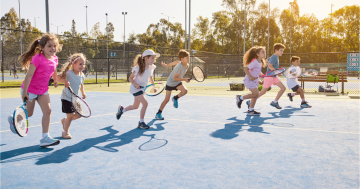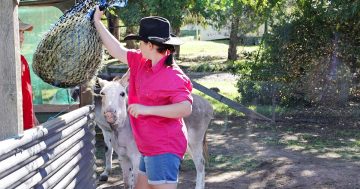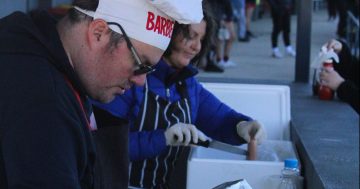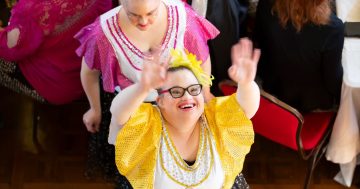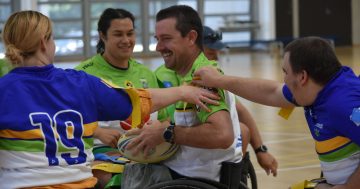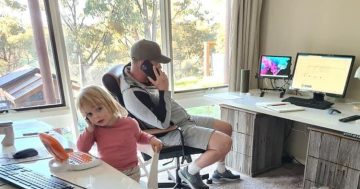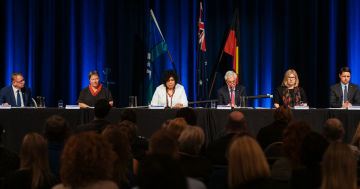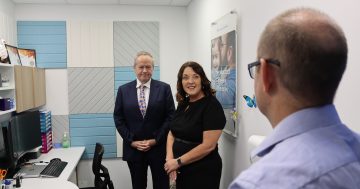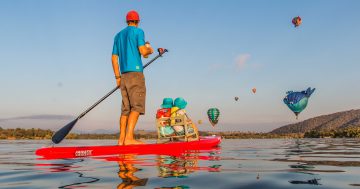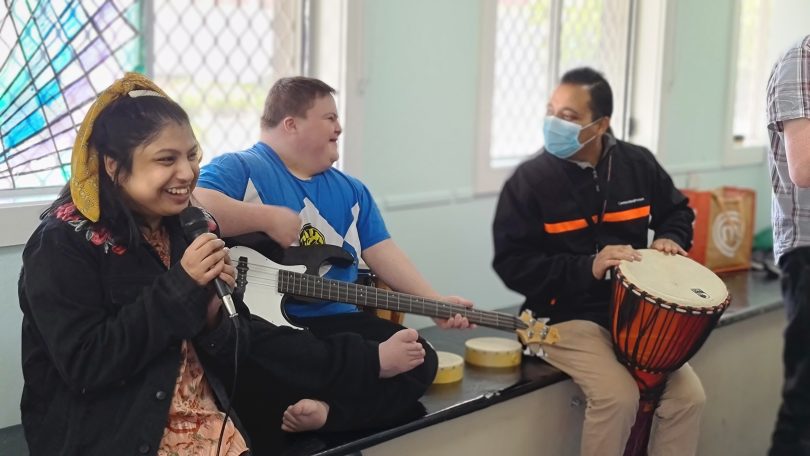
Friday, 3 December, is International Day of People with Disabilities. Photo: Communities@Work.
In a world where there seems to be a day for everything – International Cheese Day, International Day for Universal Access to Information, even International Hand Washing Day – one stands out as truly worthy of our attention. Friday, 3 December, is the International Day of People with Disabilities.
Created by the United Nations in 1992, the day isn’t just a tokenistic annual reminder that there are people who live with a disability in our community. It’s about encouraging us to ensure they can meaningfully participate in society.
It’s why our buildings have wheelchair accessibility, and why our COVID-19 press conferences have Auslan translators.
In our backyard, it’s the aim of Communities@Work’s disability program. From its start as a single youth support centre in Tuggeranong, it’s morphed into a wider program that provides coaching to adults, teens and younger kids.
Jo Cochrane, who heads up lifestyle services at Communities@Work, is direct about its endgame, and why the organisation’s support workers are called life skill educators.
“For every program and every activity, we’re looking at a life skill and how that activity or interaction relates to a life skill,” she says.
Kim Eason directly manages the disability program and says it’s divided into an adults program, a school holiday and after-school program for teens, and a school holiday only program for kids, run at Malkara Specialist School.
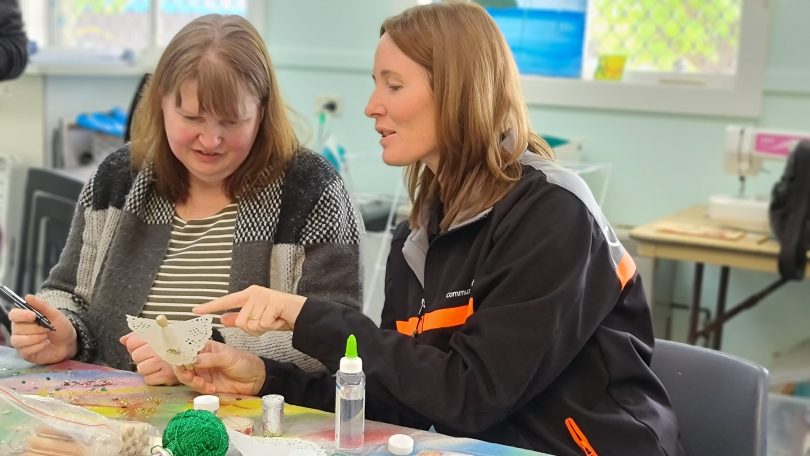
Communities@Work is seeking more life skills educators. Photo: Communities@Work.
Kim says activities for adults include getting themselves dressed and ready in the morning, learning how to do daily chores in their own home so they can move out and be more independent, and social activities focused on communication interaction with other people their own age.
She says there are different stages for adults in the programs.
“Some people might be ready for work or volunteering, and we’ll go down that path, while others may not be able or ready to work so we’ll look at those other things as well as sensory development,” says Kim.
The teens program focuses on giving teens with disabilities some time away from their families with their peers in a fun, less structured, but still a life-skill teaching environment.
There’s activity themes such as ‘Masterchef Monday’ where the teens are encouraged to find a recipe and work out what’s needed to make it happen.
A school holiday program for kids between the ages of five and 12 is all about having fun while helping them develop skills that range from communicating, feeding themselves, or toilet training.
“Those really fundamental things that you and I could do when we were aged between four and six that they haven’t yet developed,” says Kim. “And then just making it as active and hands on as possible.
“Their families love it when they go home exhausted because they know they’ve had a fun day.”
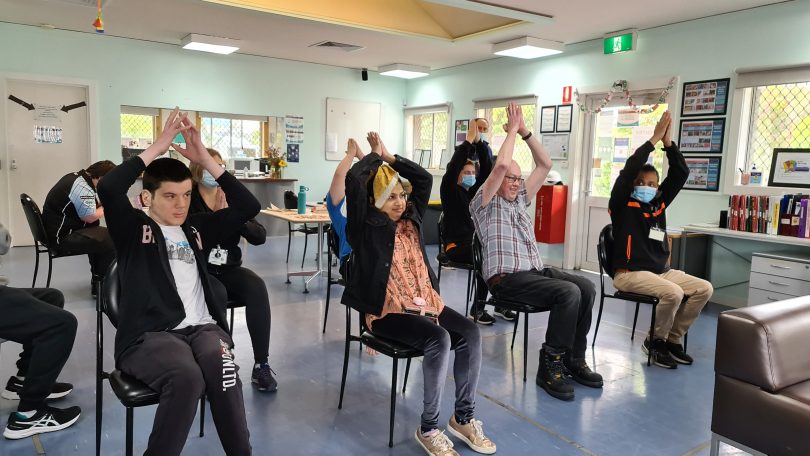
Communities@Work’s disability program provides coaching to adults, teens and younger kids. Photo: Communities@Work.
Both Jo and Kim agree that if there is one thing the program needs it is more life skill educators.
“Some recruits try it for a year, and some decide it’s for them, while some move on to other teaching roles,” says Kim.
“But one of the things people don’t tell you about the industry is how much it changes your life – not just the people you’re working with.
“Every day there is progress for a person you’re working with.”
Kim says if people are unsure whether it’d be a good fit for them, they should just give it a go.
“We’ve had lots of people come through to volunteer in our program, just to see what the days are like and what the work entails,” she says. “More often than not, around 70 per cent of those people apply for a casual or part-time role.”
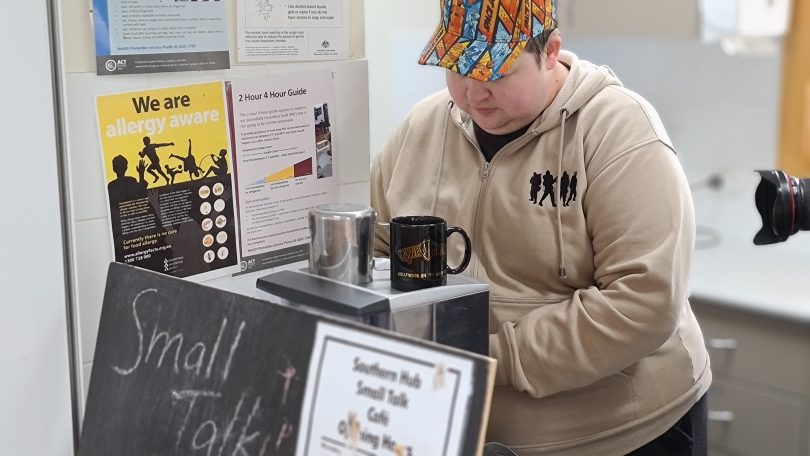
A donation of a coffee machine prompted one client to develop an inhouse cafe and share his barista skills with his fellow group members. Photo: Communities@Work.
For Kim, there are so many moments that stand out in her time in role at Communities@Work and more broadly in the disability sector.
One moment that underscores the significance of the disability program was the man aged in his 50s whose mum was diagnosed with Stage 4 cancer.
“Mum did everything for him,” says Kim. “She was beside herself going, ‘What’s my son going to do when I’m not here anymore?’
“But to see him grow in the year that she had left with him was phenomenal and for her that was so fulfilling. She got to see how capable he was, and that if she did go, he would be OK.”
If you want to find out more about being a life skills educator helping Canberrans with a disability live independently, get in touch with Communities@Work.











